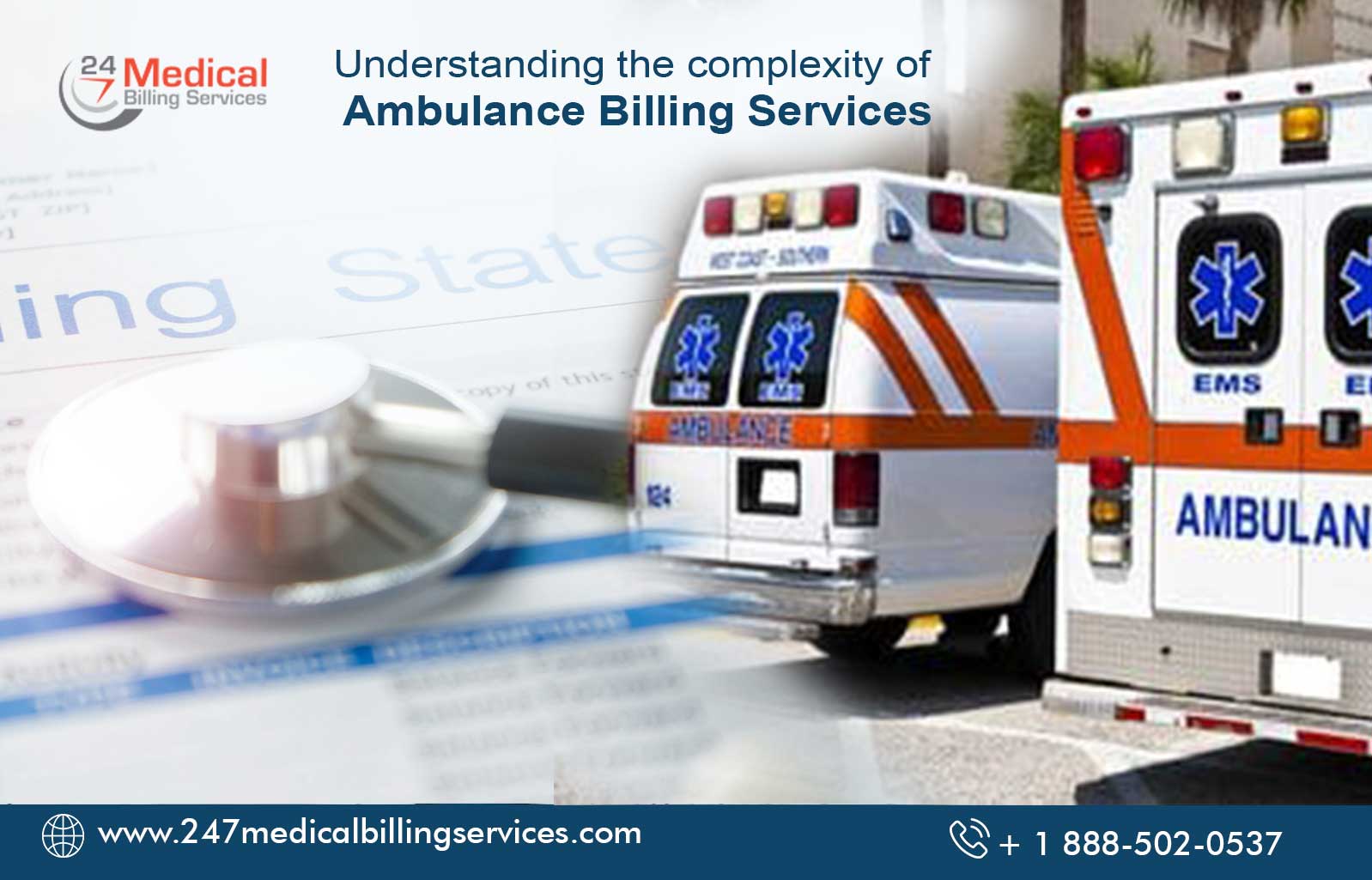
Understanding the complexity of Ambulance Billing Services
Fraud is just one part of the complexities involved with ambulance billing. There are multiple complications and challenges involved with it which one needs to understand thoroughly. Especially when cost and time are to be saved. The processes like changing healthcare reforms, the ever-updating ambulance rules & regulations from CMS, and the compliances that all healthcare providers need to follow, even ambulance services.
A good number of complexities related to ambulance billing services have caused regular errors which result in claim denials by insurance carriers. To avoid and reduce such claims denied or processed, everyone related to emergency medical care and transportation needs to have a better understanding of the below mentioned factors in order to improve the overall performance of the practice and ambulance services. This article is handy for you if you are coming across the most commonly overlooked aspects of ambulance billing.
- Unlike regular medical billing services, ambulance billing is not seen on a definitive diagnosis. Here, the patient is diagnosed quickly and treated immediately when first "met" with.
- Medical billing and coding are handled based on the patient care report filed by the ambulance crew together with the additional inputs from the "run sheets" as filled in when the patient is picked up. Appropriate documentation in the Patient Care Report (PCR) is of the highest importance, particularly for compliance and thereby proper claims. This report has to include all detailed information of the patient's condition which reflect the injury or condition on the patient's anatomy, and also terminology is required to be applied, besides Mileage documentation, Level of service in terms of Basic Life Support (BLS) or Advanced Life Support (ALS) service offered which can make a difference to creating a proven Revenue Cycle Management (RCM) process. For example, if an emergency call is received for an ALS dispatch, and ALS assessment was conducted, but no ALS intervention was mentioned, yet the ambulance billing was done based on the ALS call, this can be termed as wrongly billed! But based on Medicare guidelines this would be right. Knowledge of the CMS Medicare Benefit Policy Manual should be thoroughly studied by the ambulance billing billers and coders.
- For many ambulance services, the single largest payor is Medicare. Medicare is also the payor with the most complicated rules and the most difficult penalties for improper medical billing. Furthermore, Medicaid is handled by each State, so rules may change drastically. There are various challenges like short "timely filing" periods, retroactive eligibility, Medicaid Managed Care, that need to be known while ambulance service providers file their claims.
- While most of the codes are related to various parts of the body, there are also modifiers for ambulance services, as there are for other healthcare providers. But, for ambulance services, the particular modifiers identify the place of origin and destination of the ambulance trip which needs to be submitted on all ambulance claims. The modifier needs to be placed near the Health Care Procedure Coding System (HCPCS) code billed. Using modifiers incorrectly leads to longer processing time and/or denial of services.
- For correct billing, all important signatures on documentation are necessary too. Including Advance Beneficiary Notices and Physician Certification Statements, are also important for billing to be compliant and avoid denial claims.
Just like any other healthcare provider, ambulance billing and coding must be done correctly every time. If you are expecting to reimburse in a timely fashion, you need to take care of all the things mentioned in this article. Ambulance providers and companies need to have deep knowledge of all procedures, billing codes, and modifiers. This article will help you considerably, and so will take some extra time to particularly document every claim submitted to an insurance carrier.
Also Read: Medical Billing Guidelines For Emergency Medical Billing Services

.png)